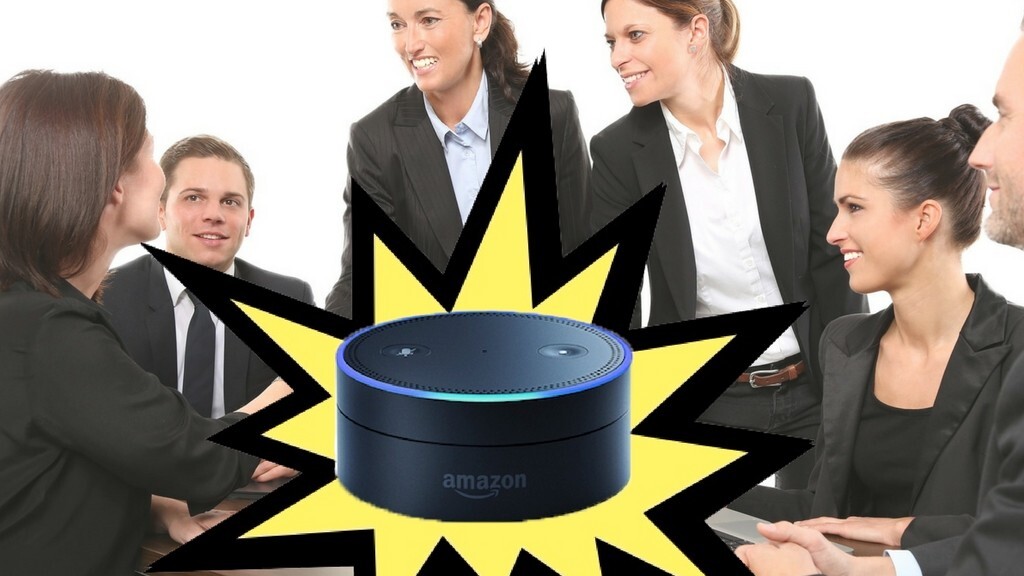
Get ready to make room for Siri, Alexa, Cortana, or Google at your conference room table. AI is about to head to the office.
Already these “voice assistants” are learning to recognize different voices within one conversation and respond accordingly. When you ask Google Home about your calendar it will know to reply with the events on your calendar and not your wife’s calendar. Likewise, when your wife queries Google home, it will respond using her data.
Imagine what this could mean in the office. If you could include a voice assistant in your videoconferences and meetings, then each participant could use the voice assistant to interact with their own calendar, email, and task list as the meeting progressed.
Imagine that Mary, Jane, Bob, and Steve are all on the same video call. Instead of fumbling around with calendars and availability times to schedule the next meeting, one of them could just say “OK Google, when is the next time that the four of us can meet for 30 minutes?” Or “Alexa, when is Bill Jones available to meet with the four of us?” The voice assistant would respond with dates and times, from which you could pick. And when you do pick a time, the meeting would be added to the calendar for Bill Jones and everyone at the current meeting.
Makers of voice assistants have already started integrating video conferencing into their systems. Google Home can initiate a voice call and Alexa uses Amazon’s new conferencing service to connect participants via the echo show.
Extend this just a little bit more and voice assistants could be active participants in our video calls, standing by to complete the mundane tasks so the meeting stays on track.
No longer will each meeting participant have to type To-Dos and Follow-Up items into their computers. Participants could simply ask Google Business — or whatever Google will call its Google Home once it hits the conference room — to add a task to their respective To-Do list. Or to mark an item complete if the task gets completed in the meeting or is deemed to no longer relevant to the project at hand.
A wonderful side effect of having voice assistants join the workplace would be the elimination of laptop use in meetings and video conferences. I am fully convinced that if people did not have their laptop computers with them — under the guise of doing some work in a meeting — that meetings would be about 50% shorter and about 200% more efficient.
If you think such a scenario is way off in the future, you are wrong.
The geometric growth associated with machine learning is already at a steep point in the growth curve, having accumulated knowledge, algorithms and methodologies over the past 20 years. It’s only a matter of months until Zoom, Cisco, Lifesize, or some other video conferencing company announces an alliance or integration of an API that will allow users to include a voice assistant in their video call.
Or perhaps these voice-enabled assistants will simply be expanded more deeply into their company’s native conferencing application. Skype for Business and Cortana might go very well together!
I think we are about two years out (or less) from being able to walk into a conference room and to simply say “I’m ready to start the meeting” and a voice enabled-assistant will make all the connections necessary to connect with the people who’ve accepted your meeting invite, regardless of the platform they are currently logged in and using.
In fact, voice-enabled assistants may be the only way that we can deal with some of the multi-platform confusion that is inherent in the modern workplace.
Get the TNW newsletter
Get the most important tech news in your inbox each week.





